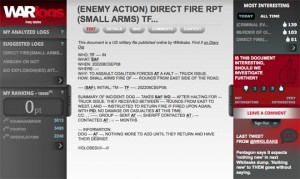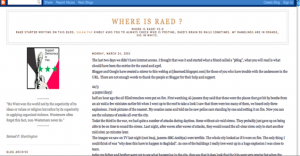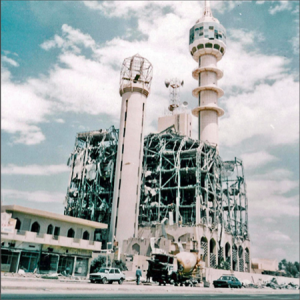WikiLeaks, launched in 2007 under Julian Assange and The Sunshine Press organization, is a non-profit media organization that publishes important (and most of the time undercover) world news so the public can have access to it. People have the freedom to submit information through an anonymous drop box (or in person/ by postage) and then Wiki Journalists analyze the material, verify it, and write a news piece stating its significance to society.
Within the first year of its existence, WikiLeaks claimed a database of approximately 1.2 million leaked documents. The entire website relies heavily on volunteers, and there is much controversy surrounding the safety of these journalists; many could be imprisoned for publishing such high-classified documents. However, WikiLeaks has overcome legal acts to silence their organization, and have formed a solid security system.
Many of the recent documents posted on WikiLeaks are related to the war in Iraq, and they are known as the War Logs. Below is a screenshot of one of the posts by an anonymous journalist:
The controversy surrounding the idea is WikiLeaks is outstanding. Many believe that the website imposes great danger on the United States and its safety, and Assange has dealt with many persecutions against him and his website. Some things should be left private in order for a country to function properly, right?
U.S. Secretary of State Hillary Clinton condemned the leaks, stating that “it puts the lives of the United States and its partners’ service members and civilians at risk.”
–Emma Bratman



